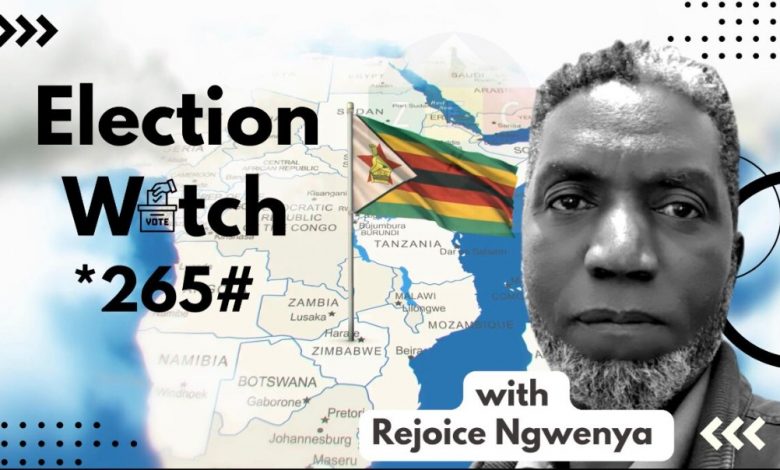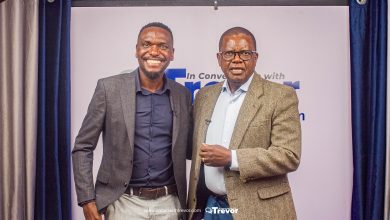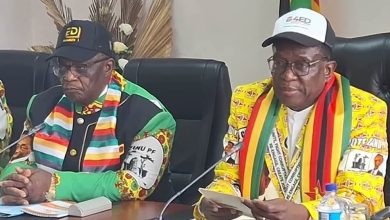My Insights on the Independence of ZEC
50 Ways to Cheat in Parliamentary, Presidential and Municipal Elections

Rejoice Ngwenya, Ruwa, Sunday, 13 November 2022
Discourse on whether or not; and to what extent incumbent African governments indulge in electoral shenanigans cannot even begin without a cursory look at relevant electoral management bodies like Zimbabwe Electoral Commission (ZEC).
A perfect democracy – if ever there was one – is where – inter alia – PESTL conditions allow for free and fair elections.
The entire country’s political, economic, social, technological and legal spectrum must permit the weakest and most vulnerable of all citizens to express their full democratic rights.
According to political scientist Robert Dahl, ‘a free and fair election’ is where “coercion is comparatively uncommon”. Wikipedia then lists about ten ‘minimum non-negotiable conditions’ – for want of a better phrase – necessary for an election to ‘qualify’ as free and fair.
Most Zimbabweans interested in elections are familiar with these factors: an acceptable (constitutional) legal framework; where the electoral management (bodies are) is independent, effective and impartial; when citizens can freely exercise their constitutional rights; an accurate and acceptable valid voters roll; and where citizens can enjoy unfettered access to ballot papers and polling stations.
Other factors are: campaign processes free from intimidation or restriction; access to media both public and private; secrecy and security of the vote and of course, a professional non – partisan team of electoral officials.
In the above repertoire, you can already sense the critical role that ZEC plays in this ‘matrix of freeness and fairness’. For almost two decades, this Chapter 12 institution has received praise and vilification, spite, criticism and blame in equal measure.
Zimbabweans are polarized on (extent) of independence of ZEC. Whether or not opposition accepts electoral results is not necessarily a litmus test of electoral freeness and fairness.
However, where contesting parties unanimously accept results – or alternatively express confidence in the ‘referee’ – one assumes elections are heavily skewed towards democratic purity. We all know that Donald Trump is yet to accept that Joe Biden won fairly, yet that does not mean American elections are not free and fair.
In other words, even where elections are free and fair, some entities will habitually cast aspersions only because it’s not them at the elevated electoral podium.
The good thing about a liberal democracy is that there is provision for arbitration in electoral courts. Unfortunately, where citizens also do not have confidence in the court system, the judgement will invariably remain a contentious issue. Such is human nature.
When I was working in the Electoral Supervisory Commission of Bishop Hatendi, I had no problem defending neutrality and impartiality of ESC. Why, because we exercised our mandate to the last letter and spirit of the then constitution. And so, what I do not understand – if Priscilla Chigumba’s ZEC is a ‘recognised’ constitutional body where everyone – except the NCA – voted for that constitution in 2013, why then is ZEC viewed with so much suspicion by Zimbabwe’s opposition parties?
Why do thousands of CSOs always accuse ZEC of being ‘captured’ by the ruling party ZANU.PF? In simpler language, ZEC has, for the entirety of its existence, been fingered as being complicit and culpable in ZANU.PF’s manipulation of electoral results.
It is not for me to say whether this accusation is true or false. I will let the facts speak for themselves, by first looking at what the Constitution outlines as ZEC’s role in ensuring that elections are free and fair.
In principle, our Constitution guarantees our freedom, so I would not for once think ZEC should have a problem interpreting Chapter 7, sections 155 onwards. Whatever Justice Chigumba and her team set out to do, they are expected not to infringe on our freedoms.
Mind you, these freedoms apply to everyone, especially those who are eligible to vote – even disadvantaged, PWDs and women. There is no Electoral Act that ZEC should administer seen to violate our freedoms.
In this respect, ZEC must not differentiate between the President, Member of Parliament and Councillor when helping us to exercise our electoral freedoms.
Everyone must be treated equally – incumbent or aspiring. Perhaps the main bone of contention here is: how much residual power does or should an incumbent president wield when his position is subject to electoral contestation?
Can or should this power be exercised to influence ZEC’s capacity to implement its constitutional mandate? Let me leave this as a subject of another day and focus mostly on what ZEC’s constitutional obligations are.
Bear in mind that the appointment of Priscilla Chigumba was through due (Parliamentary) process. So, one question is to what extent could the current
Parliamentary balance tipped in favour of ZANU.PF influence the choice of ZEC commissioners? Also – the ultimate executive authority that President Emmerson Mnangagwa wields – can it influence the ‘behaviour’ of Justice Chigumba?
When we ‘wrote’ this Constitution in 2009, we agreed that all judges must be professionals whose opinion is immune to any political influence.
In this respect, the onus is on the State – read, the ZANU.PF government – to guarantee the freeness and fairness of elections. 50% of what political scientist Robert Dahl says lies in the hands of the State. ZEC does not own ZRP, the Zimbabwe National Army, Zimbabwe Prison Service or the much-hated Central Intelligence Organisation.
These institutions are State controlled but paid for by everyone i.e., ZANU.PF supporters, CCC supporters and even citizens with no interest in electoral politics.
Therefore, according to our Constitution, it is not correct to blame ZEC for the transgressions of ZRP, ZNA, ZPS or CIO where freeness and fairness of elections is disrupted. The question still remains: in the event that these State institutions are seen and proven to have poisoned the electoral environment, what is within ZEC’s power to correct the situation?
I will again turn to the Constitution to answer this question why, because this defines independence or partiality.
In section 156 of our Constitution, ZEC must ensure all elections are simple, accurate, verifiable, secure and transparent. Also – and this is important – ZEC must ensure that appropriate systems are in place to eliminate electoral violence and other shenanigans.
However, I am not so sure what powers ZEC would have applied to prevent ZANU.PF thugs from assaulting Senator Jasmin Toffa last month. In 2008, many opposition party members were either injured or killed.
In 2018, the national army shot and killed people before the results were announced. In order for ZEC to prove its impartiality, what should Justice Chigumba and her team do to prevent CCC electoral meetings from being interrupted by ZRP or ZANU.PF; when registered voters and candidates are assaulted or when ZANU.PF uses State resources to ‘buy’ votes? In principle, this defines essence of ZEC independence.
Without even considering what justice Minister Ziyambi Ziyambi will have in his new Electoral Amendment Bill, you and I can get the answers when I turn to Chapter 12, sections 232 – 2241 for guidance, in my next thesis on Sunday, 20 November 2022.
Rejoice Ngwenya, Ruwa, Sunday, 13 November 2022.




